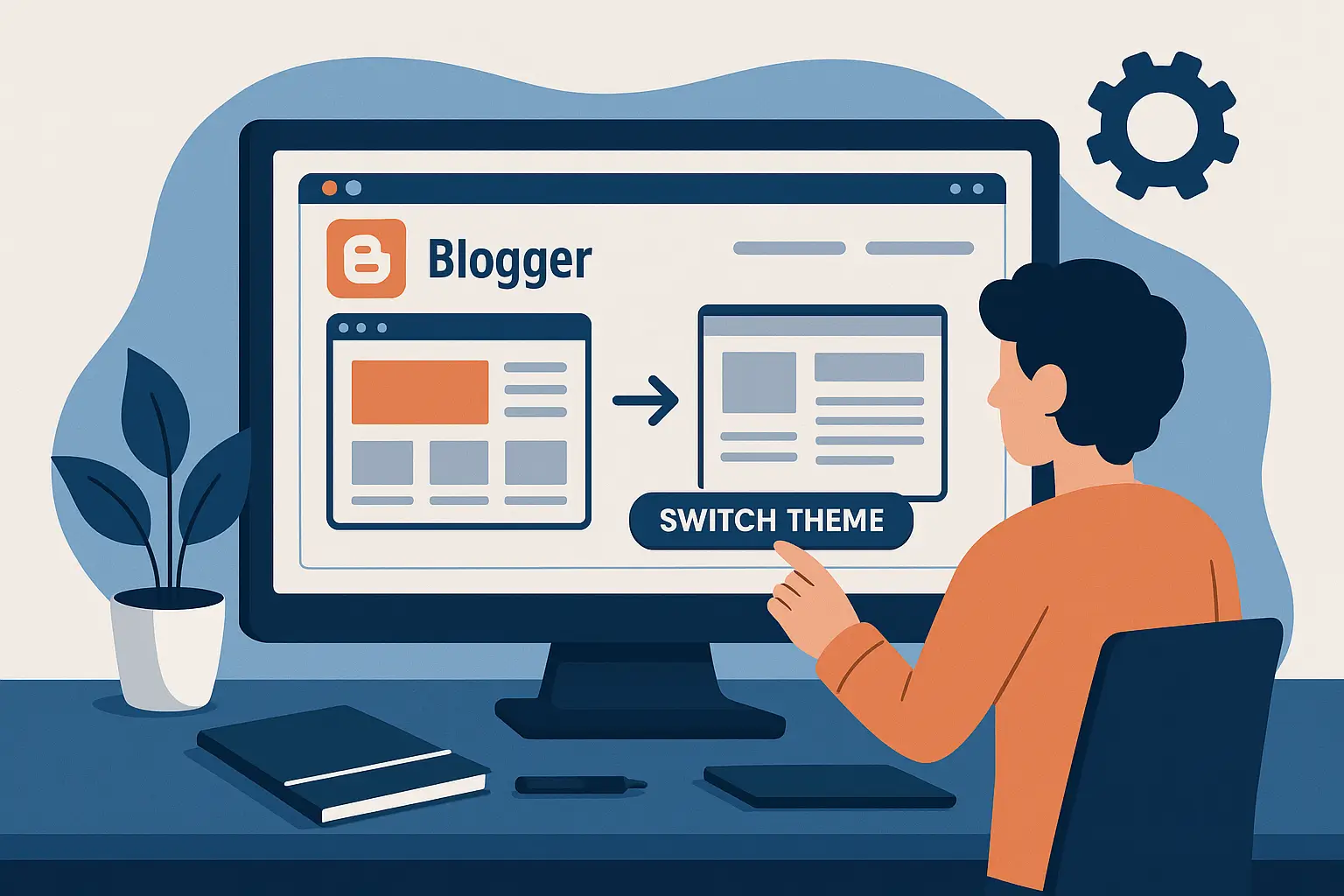Thinking about giving your Blogger site a fresh new look? Changing your template is a great way to refresh your design — but if done without care, it can break your layout, remove gadgets, or even affect your SEO settings.
In this guide, you’ll learn how to switch Blogger templates (themes) without losing content or functionality.
Table of Contents:
- Step 1: Backup Your Current Theme
- Step 2: Save Layout and Gadget Settings
- Step 3: Note Down Any Custom Code
- Step 4: Use Preview Before Applying
- Step 5: Upload and Apply New Theme
- Step 6: Reconfigure Layout & Gadgets
- Bonus: Keep SEO and Social Settings Intact
- FAQs
Step 1: Backup Your Current Theme
Before you switch, download a full backup of your current theme.
How:
- Go to Theme > Backup/Restore (top-right corner)
- Click Download theme
- Save the
.xmlfile safely
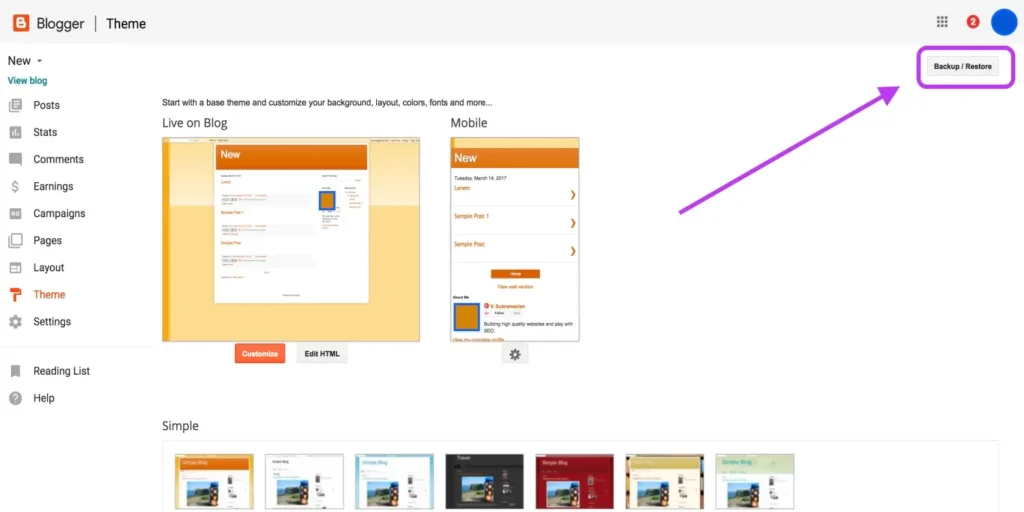
Why it matters: If anything breaks or looks off, you can revert to your old theme instantly.
Step 2: Save Layout and Gadget Settings
Most Blogger themes use gadgets for menus, sidebars, social icons, and ads. When you change your theme, these often get removed or repositioned.
What to do:
- Go to Layout
- Take screenshots of:
- Sidebar gadget order
- Footer layout
- Navigation gadgets
- Note any custom text/html you added
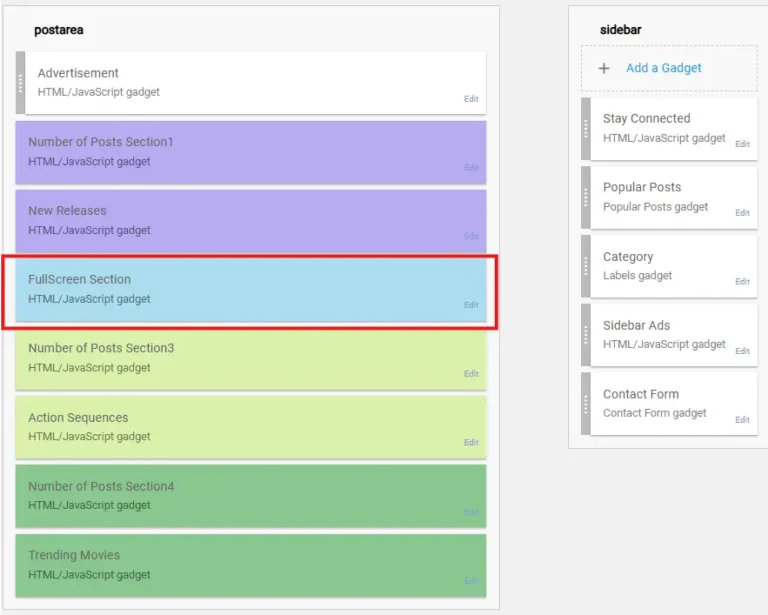
Step 3: Copy Any Custom CSS or Meta Tags
If you added:
- Custom CSS in Theme > Customize > Advanced > Add CSS
- Meta tags, Schema, or analytics codes in the HTML head
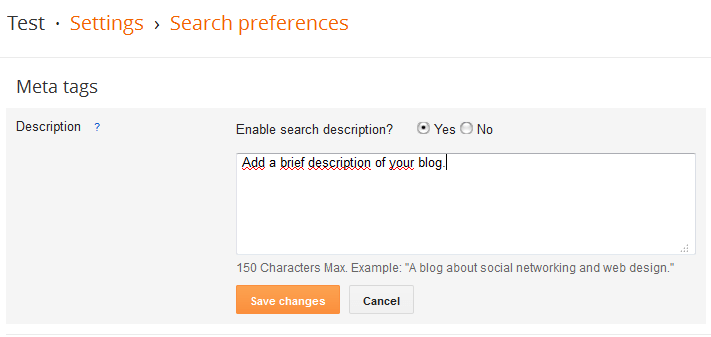
👉 Copy and save them separately.
Some Blogger themes don’t carry these over after switching.
Step 4: Use “Preview” First
Before applying the theme, always Preview it to test layout compatibility.
- Go to Theme > Restore
- Upload the new
.xmlfile - Click Preview or Live Demo in case of custom template.
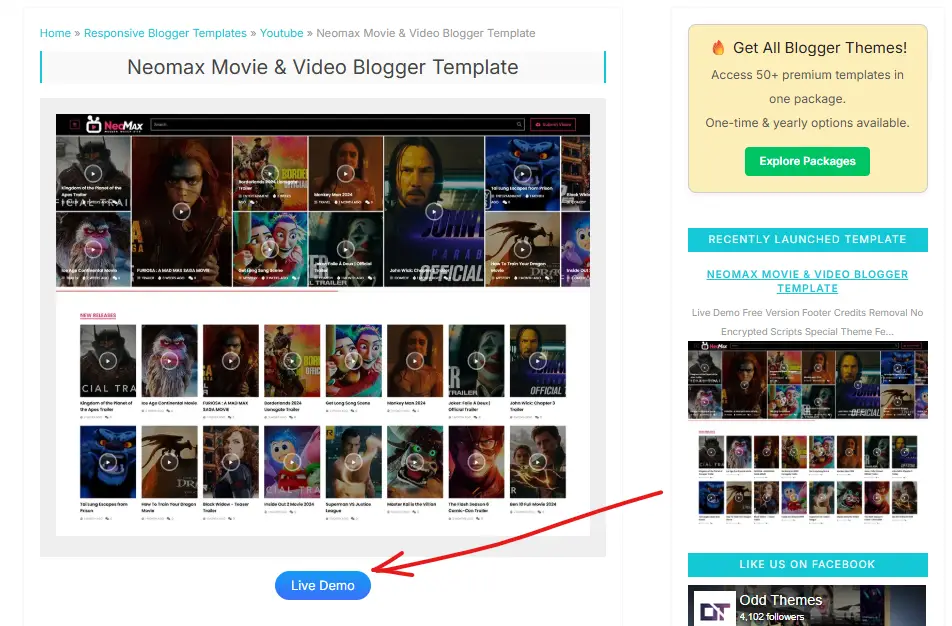
Step 5: Upload and Apply the New Theme
Once you’re ready, you can apply your new Blogger theme using either of two methods:
Method 1: Upload the .xml Theme File
- Go to Theme from your Blogger dashboard.
- Click the Backup/Restore button in the top-right corner.
- Click Choose File and select your
.xmltemplate file. - Click Upload to apply the theme.
✅ Your new theme will be applied immediately.
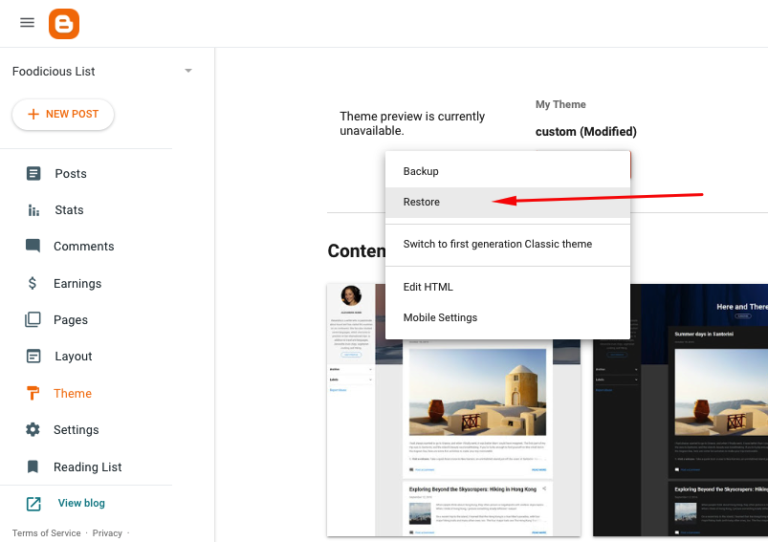
Tip: Always use a .xml file provided by trusted sources like Oddthemes to ensure it’s clean and responsive.
Method 2: Copy and Paste the Theme Code
If you’ve received a code snippet instead of a file:
- Go to Theme > Edit HTML.
- Click inside the code editor.
- Press Ctrl+A (or Cmd+A) to select all the current code, then delete it.
- Paste the new theme code into the editor.
- Click the Save icon at the top-right corner.
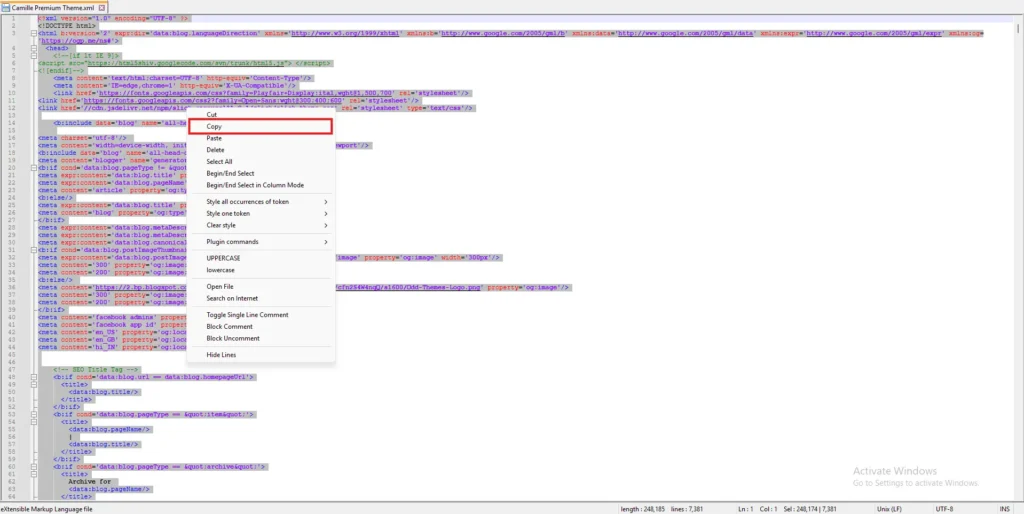
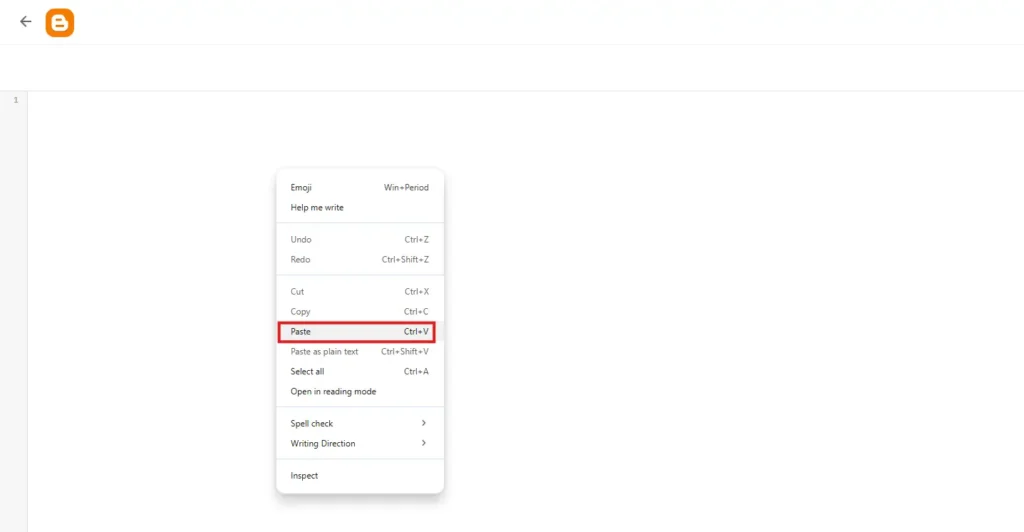
⚠️ Important: Double-check the code for errors before saving. Improper code may break your layout or prevent the blog from loading.
Step 6: Reconfigure Gadgets and Settings
After switching:
- Go to Layout
- Re-add or reposition your gadgets (sidebar, navbar, etc.)
- Update the favicon
- Add back social links, newsletter forms, and ad codes if needed
🛠 Some third-party themes may also include extra instructions. Always follow their documentation.
Bonus: Keep SEO & Social Settings
Blogger SEO settings are mostly preserved, but double-check:
- Settings > Meta Tags
Make sure “Enable Search Description” is ON - Reconnect to Google Search Console if needed
- Add Open Graph Tags and structured data if the theme supports it.
Frequently Asked Questions
Will I lose my posts or pages if I change the Blogger theme?
No. Blogger themes only affect layout and design — your content stays safe.
Do I need to reapply AdSense or Analytics after switching themes?
If your tracking codes were placed inside gadgets or the HTML head, yes — reinsert them manually.
Can I use custom themes from outside Blogger’s library?
Yes, you can upload any .xml template. Just make sure it’s mobile-friendly and SEO-ready.
Final Thoughts
Switching your Blogger theme is easy when you follow the right steps. Whether you’re installing a premium template from Oddthemes or customizing a free one, make sure to backup, preview, and test before going live.
📌 Want a fresh, responsive Blogger template?
Explore professionally designed options at 👉 OddThemes.com
